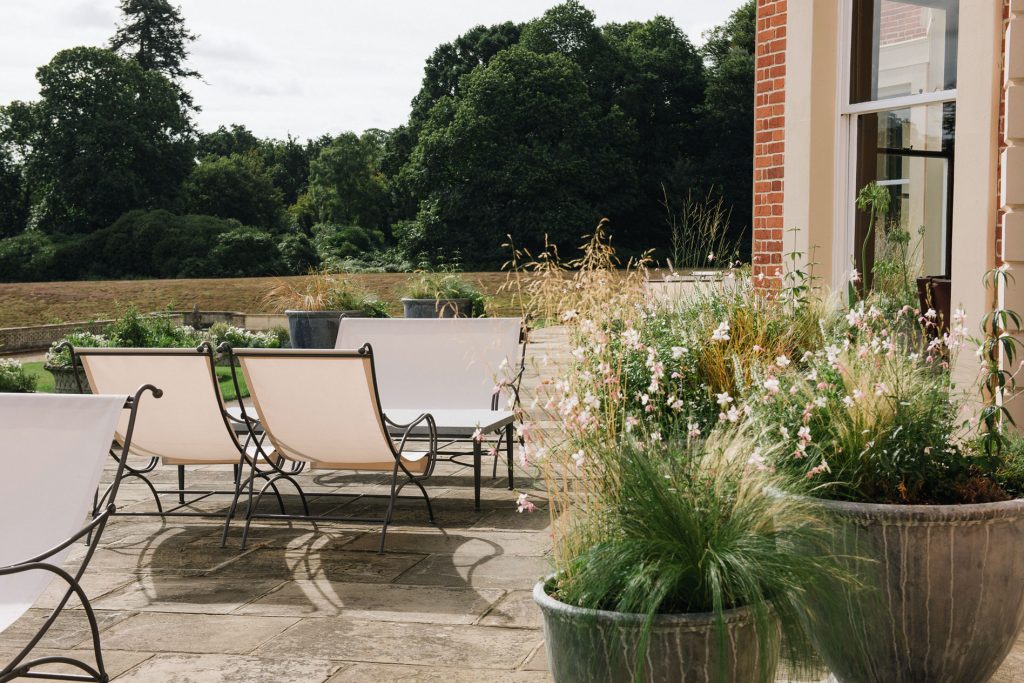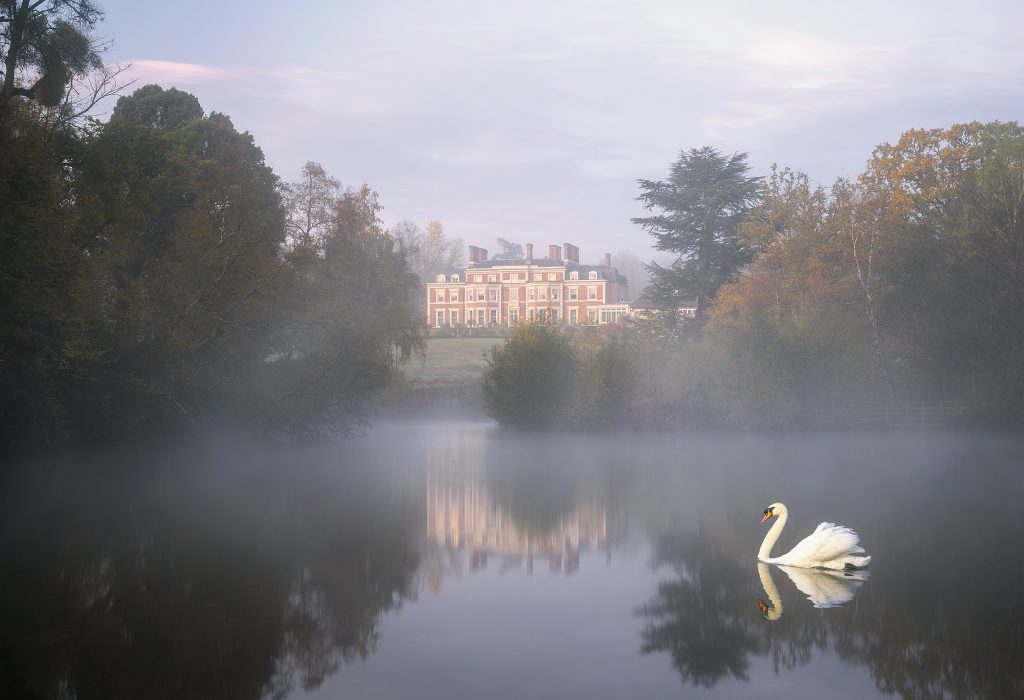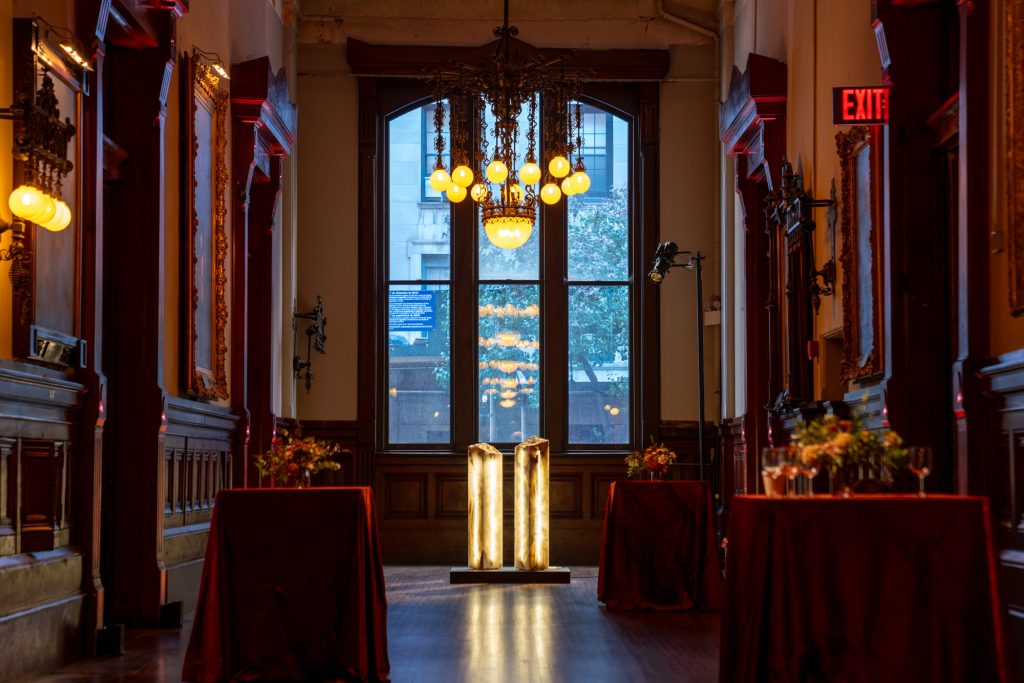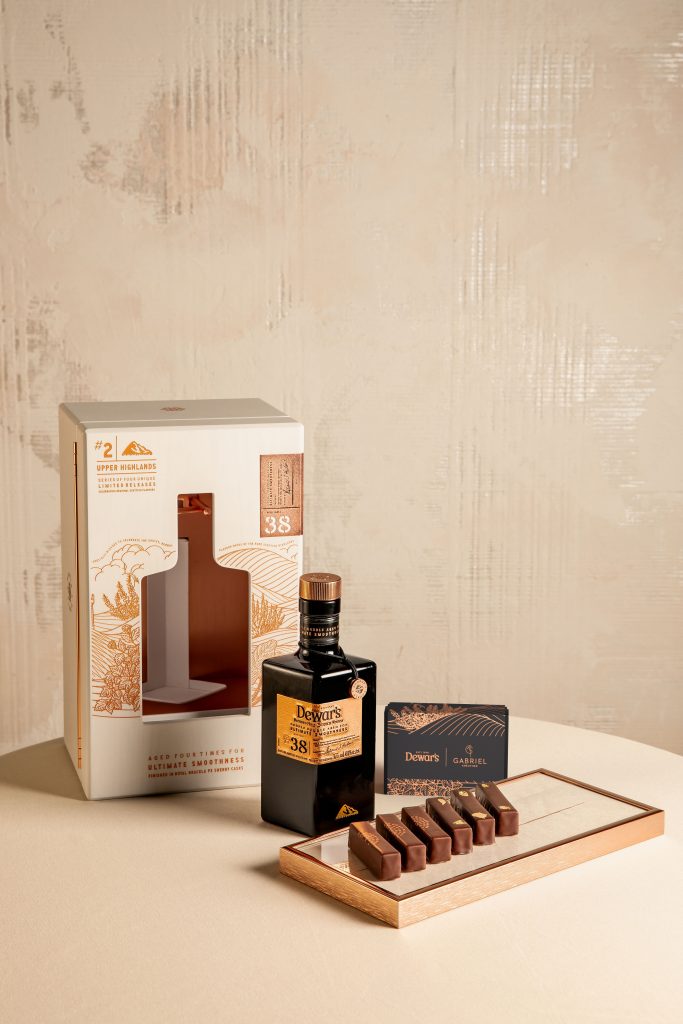Hampshire, England’s Eco-Friendly Luxury Hotel, Heckfield Place
A grand country house where the heavens feed the earth—and the guests

The great English country house conjures dreamy images of horseback rides and strolls through rolling hills on misty mornings. Of piles of scones at afternoon tea. Of formal dress for grand dinners served beneath yellowing portraits of long-gone forebears. The reality of the modern English country house is, of course, not the same as the cliché, but it can be just as picturesque and memorable when lived for a few days as a guest at magnificent Heckfield Place in Hampshire, an hour southwest of London.

The luxury hotel opened in 2019 after an extensive and careful renovation transformed it from a conference center into a grand, art-filled, no-detail-too-small-to-tend-to retreat. The Georgian manor home is surrounded by 438 acres of woodlands, fields, gardens and lakes, ensuring the outdoors are a key element of the experience at any time of year.

Flowers from the gardens fill the 45 guest rooms and public spaces, and Heckfield’s Home Farm provides much of the food served at the two restaurants overseen by culinary director, Skye Gyngell. Sheep will probably block the path on one of your walks around the grounds, though they won’t let you close enough for a snuggle. (The cows will be more amenable to a quick scratch behind the ears if you catch them in the right mood.)

You could spend your whole vacation within the house easily and lazily; settling into a deep armchair in one of the living rooms with a novel found on one of the bookshelves, taking a self-guided tour of the impressive art collection using the in-room iPad as your knowledgeable docent, snoozing by a fire on the patio, trying another herby cocktail under the disco ball in the Moon Bar, watching a recent release in the screening room, falling asleep during a massage at Little Bothy Spa, attending an author’s lecture at The Assembly, getting lost in the wine list at a four-hour dinner. The options seem endless.
Look beyond the perfect details, and you’ll find in Heckfield’s history a commitment to the land that runs even deeper than their commitment to guest service and delight. It’s a commitment so deep that earlier this year, Heckfield Place became the first hotel in the United Kingdom to be certified 100% biodynamic.

The story of Heckfield Place begins 250 years ago in the 1760s, when a young mother (recently orphaned and widowed) built the home to be near an aunt and uncle, who lived on the estate. The next owners were the Shaw-Lefevre family, who arrived in 1786—bringing great wealth along with social and political standing—and considerably expanded the house, gardens and stables through three generations.

Charles Shaw-Lefevre, grandson of the original purchaser, John Lefevre, spent 18 years as the Speaker of the House of Commons and was named Viscount Eversley by Queen Victoria when he retired. Agriculture was always a primary concern during his career; he chaired meetings about the state of agriculture, attended the first meeting of the Royal Agricultural Society of England in 1838 and later served as its president. Not surprisingly, he brought this passion home, building a modern dairy farm that produced milk, butter and cheese for the kitchens at Heckfield and raising a breed of prize-winning pigs whose descendants still live in the meadows.

His real luck was hiring a head gardener, William Wildsmith, whose nature ambitions and attentions outpaced Lord Eversley’s. Wildsmith was a prize-winning agricultural pioneer, writer and mentor to a team of some 30 gardeners, many of whom went on to oversee the gardens at such stately homes as Blenheim Palace and Sherborne Castle. The fires in Home Farm hothouses were kept lit day and night, yielding a bounty that included figs, strawberries, pineapples, cucumbers and enough grapes to fill a special grape room that held 2,000 bunches. Wildsmith died just shy of 53 years old in 1890, but his legacy is strong. Wildsmith, Heckfield’s in-house line of skincare products and bathroom amenities, is named in his honor.

The current owner of Heckfield Place, Gerald Chan continues the tradition of benevolent and enlightened stewardship. The art collection in the house is his own. His commitment to sustainability is strong, as seen in the absence of all plastic from the guest rooms and no single-use plastic in the kitchens, in the biomass energy center that turns waste into fuel heating, and an overall aim to be as close to zero-waste as possible.

Which brings us back to the Home Farm. The key individuals here are Heckfield Place general manager, Olivia Richli, who proudly shares the history of the house and its bounty with all guests; culinary director Gyngell, whose seasonal menus adhere to her root-to-plate ideals; and head market gardener David Rowley, who supervises the team of a dozen.

Rowley leads us on a tour of the gardens, past endless rows of artichokes, lettuces, radishes and beans, explaining the principles behind biodynamic farming along the way. On the bottom rung of good practices is conventional farming, which came into fashion after World War I when the use of chemicals (especially in fertilizers) became standard and soil quality began degrading as a result. Organic farming is a vast improvement, relying on natural fertilizers that replenish the soil instead of harmful chemicals derived from fossil fuels. The highest rung of farming may be biodynamic farming, which more than a practice is a holistic way of looking at the produce we eat and the land and the air that sustains it.

Rowley speaks about Rudolf Steiner, the philosopher and social reformer whose lectures in 1924 formed the backbone of the biodynamic practices. One one hand, considering the closed loop system that exists among animals, crops and the environment is just common sense: healthy soil yields healthier fruits and healthier animals who will help create a healthier environment. But Steiner took it a step further, considering the influence the cosmos—particularly the sun and the moon—has on all aspects of the farm.
Maria Thun took Steiner’s principles even further, developing a calendar that aligns the phases of the moon and assigns four plant types (root, fruit, flower and leaf) to a zodiac sign, with specific tasks to be undertaken on certain days—and nothing to be done on days deemed unfavorable. Rowley assures us they’ve tested this theory and have seen that planting or harvesting on days not according to the calendar absolutely yield less fruitful results.

That night at dinner, we pay special attention to the pea shoots in the salad, the herbs on the linguini, the butter on the seeded bread, the edible flowers on the buffalo mozzarella. Knowing the provenance of the produce—and how loved the earth it comes from has been for two and a half centuries—makes the meal taste even better and the entire experience feel more special. That’s the quiet magic of Heckfield Place.
Images courtesy of Heckfield Place












